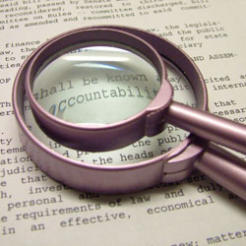With technology driving ever more leaks of sensitive information, charities should prepare to reveal all from the outset, says John Tate.
Christmas is behind us and a very challenging 2011 awaits. A lot has been happening on the IT front. The biggest recent stories have undoubtedly been around WikiLeaks – where a number of huge disclosures have been made. The United States diplomatic cables leaks (known as Cablegate) resulted in over 100,000 documents being released. This caused huge embarrassment to the diplomatic world – in particular the US. It revealed what many suspected – that US diplomats said one thing and believed another. A fabric of lies, deceit and cover-up was created and fostered by many in the diplomatic world.
I have been rabbiting on for several years about the impact IT will have on transparency and these recent revelations prove the point. The web is a medium that now allows huge amounts of confidential data to be disclosed and read by millions. Many/most IT systems are not sufficiently secure to prevent someone from removing confidential information and publishing it via the internet. So it will happen. Information will be published – let the owners of data beware!
Is this a good thing in general – and more specifically for civil society? I have mixed views. Wellrun organisations face the same risk of unauthorised disclosure as those which have something to hide. Even if you are well-run it does not mean an unhappy employee/volunteer can’t make claims against you. Defending yourself against malicious attack can be hugely time-consuming and cause reputational damage. Readers of allegations find it difficult to establish the truth and there is a danger they will reach the wrong conclusion.
On the other hand we all know of too many examples where badly run organisations successfully keep their issues under wraps. The organisation and its stakeholders may have much to gain if these problems come out in the open. On the more positive front, if you are doing something really good, the internet is a great environment to bang your drum and get your message to the outside world.
IT security
So what about IT security? Can you use this to stop confidential information getting to the outside world? In short, the answer is probably no. Email correspondence is easily released to the outside world. Anything stored on a computer hard disk can be hacked. As soon as you give an employee access to confidential information there is a way to get it out of your system. Mobile phones have cameras which can capture screen images, a USB key can capture thousands of documents in minutes, telephone conversations from mobiles or conventional phone lines can be easily recorded.
Whilst CEOs/FDs in their fifties may not have the skills to do this, a bright young 20-year-old almost certainly will.
Over the next few years IT will drive the transparency agenda. Civil society needs to embrace this at an absolutely fundamental level. If you are badly run and do not attempt to address your issues – beware. While you may feel you can keep things under wraps today it may be different tomorrow and you need to be prepared for this.
Over the next decade or so IT will force a fundamental change to how civil society works. Trust in charities in the short term is likely to decrease as more negative stories hit the outside world. The next generation of workers will find this information on the web. Blind trust in charities will erode.
Among all the noise, those that genuinely practice what they preach will come to the fore and grow. Wellrun charities need to put in place a communications strategy to promote the good they do – and be genuinely transparent about how they operate. This will help defend against adverse coverage as and when it occurs.
Many in the sector will fight this change. The old school of FD has been brought up to resist disclosure of almost anything, with a mantra of less is more. Too many umbrella bodies and membership organisations themselves have things to hide, resist change and think they can get away with behaving how they like. They will resist disclosure and transparency until the bitter end.
So get ready for it. Salary levels of senior staff (and yes expenses!), beneficiary and employee satisfaction levels, project successes and failures, expenditure on admin costs. Get this information and start to publish – or be damned!
John Tate is MD of ChangeBASE, IT adviser to the CFDG and a visiting lecturer to Cass Business School








